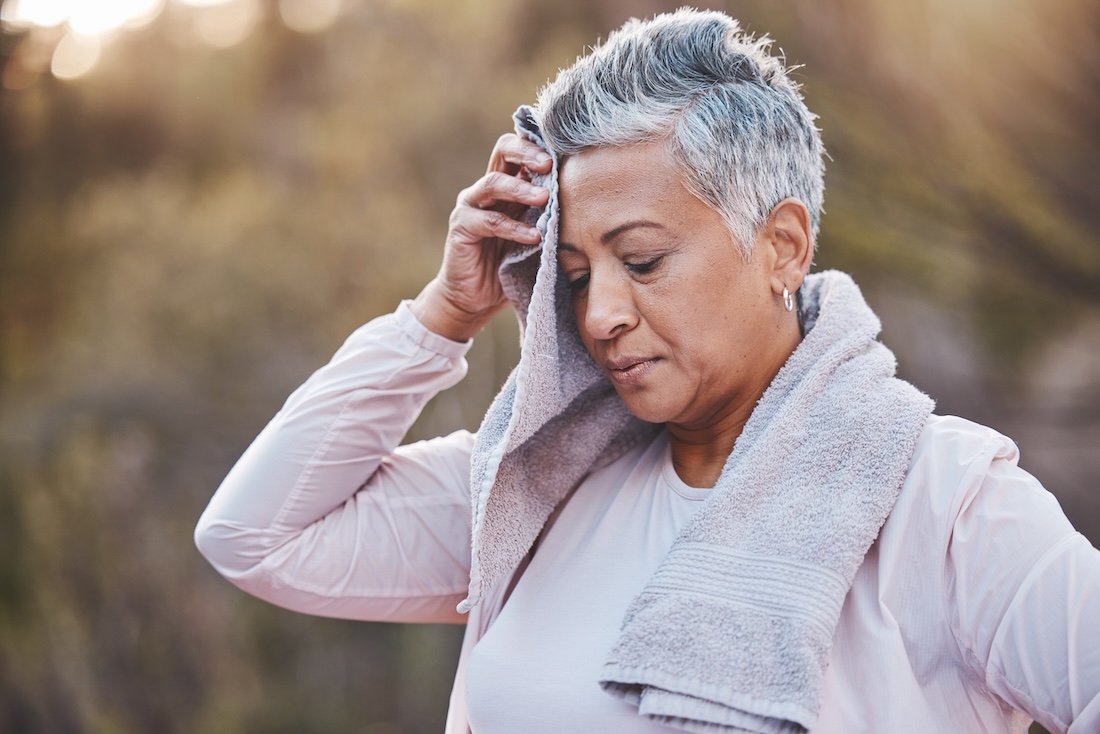Road-Trip Ready Gut: Preventing Bloating and Heartburn on Long Summer Drives
Nothing signals summer freedom like packing the car, queuing a playlist, and watching Lake Erie vanish in the rear-view mirror. Mid-July is vacation prime time for Westlake families, yet the same journey that thrills the soul can also take a toll on the digestive tract. Hours of sitting, drive-through meals, and irregular hydration can lead to bloating, reflux, and the kind of abdominal discomfort that turns scenic byways into endurance tests. For women in perimenopause or early post-menopause, the risk doubles. Hormone shifts slow gut transit, relax the lower esophageal sphincter, and heighten sensitivity to gas pressure.
If you have ever unbuckled your seatbelt on I-90 to relieve belly pressure or hunted antacids in a rest-stop vending machine, this guide is your new co-pilot. Below you will find practical, road-tested strategies I share with patients during concierge primary care visits. They are tailored to the way estrogen, progesterone, and travel conditions interact, so you can reach that cottage or theme park feeling light and ready to explore.
Why Menopause Alters Road-Trip Digestion
Estrogen promotes colonic motility, moving food smoothly along. Progesterone keeps the lower esophageal sphincter snug. When levels fluctuate during perimenopause, both functions wobble. Transit time lengthens, leading to gas buildup, while the sphincter loosens, allowing stomach acid to splash upward during bumpy rides or after meals. Add tight waistbands and the carbonation from a roadside soda, and discomfort is almost guaranteed.
Pre-Trip Prep: Set the Stage the Night Before
Load fiber early, not late
A large salad at dinner provides soluble and insoluble fiber that helps sweep the colon overnight. Eating it the morning of departure can backfire, causing gas to be trapped during the first leg of the drive.
Hydrate without fizz
Aim for at least 16 ounces of still water before bed. Carbonated drinks create bubbles that expand with altitude changes on hilly routes.
Check medications
Certain calcium channel blockers or anticholinergic agents worsen constipation. Talk with your doctor about timing or temporary dose adjustments before multiday car travel.
Smart Packing: The Digestive First-Aid Kit
• Ginger chews to settle queasy stomachs without sugary soda
• Magnesium citrate packets for gentle overnight relief if constipation strikes
• Low-acid protein bars made with almond butter and oats
• A reusable 24-ounce water bottle marked with hourly goals
• Peppermint or fennel tea bags; gas station hot water turns them into a bloat-busting brew
Breakfast Before Ignition
Skip the fast-food biscuit. Choose Greek yogurt mixed with chia seeds and berries. The combination offers protein for steady energy, probiotics for gut balance, and omega-3 fats that fight inflammation. If you need something handheld, wrap a banana and almond butter in a whole-grain tortilla. It travels well and delivers potassium that reduces sodium-induced water retention.
In-Car Habits for a Peaceful Gut
Hydrate by the clock
Sip four ounces of water every thirty minutes. Small, frequent doses prevent bathroom emergencies yet keep stool soft and acid diluted.
Eat small, frequent snacks
Large meals send a surge of acid into the stomach and slow emptying, which can prime both reflux and bloating. Pack single-portion nuts, apple slices, and carrot sticks to graze without overfilling.
Use posture cues
Sliding low in the seat compresses the abdomen. Adjust lumbar support or place a small pillow behind the lower back. Every ninety minutes, stop to stand, stretch arms overhead, and walk for five minutes. Movement stimulates peristalsis, which moves trapped gas upward, allowing it to exit.
Mind the AC vent
Cold air blasting the abdomen can trigger visceral muscle tension, worsening cramps. Direct vents toward your feet or windshield instead.
Rest-Stop Menu Decoding
The average Ohio Turnpike plaza offers limited options; however, strategic choices are available.
• Opt for grilled chicken over breaded, then remove the top bun to reduce refined carbs.
• Swap fries for a side salad and use olive oil packets instead of creamy dressings.
• Choose fruit cups packed in water, not syrup, to avoid fructose overload that ferments in the gut.
Managing Heartburn Without Meds
If you forgot your proton pump inhibitor:
Mix one teaspoon of apple cider vinegar in four ounces of water and sip slowly. The mild acid can signal the stomach to close the sphincter more tightly.
Chew sugar-free gum for ten minutes. Increased saliva neutralizes mild acid.
Elevate your torso by reclining the passenger seat. Gravity keeps acid where it belongs.
Evening Arrival Reset
Unpack, then take a fifteen-minute stroll before dinner. Light activity revs up digestion without overstressing travel-fatigued muscles. For dinner, focus on lean protein, steamed or grilled vegetables, and a complex carb like quinoa or sweet potato. Limit alcohol to one glass; ethanol relaxes the esophageal sphincter and dehydrates tissues, both enemies of a restful first night.
Finish the day with a warm Epson-salt foot soak. Magnesium absorbed through the skin can relax intestinal smooth muscle and prime the colon for a productive morning.
Concierge Support on the Go
Patients enrolled in our Westlake practice carry more than snacks. They have direct text access for quick questions, such as whether a sudden abdominal spasm warrants urgent care or if a store-brand laxative is safe with current medications. We can locate the nearest reputable urgent clinic in unfamiliar towns, refill prescriptions electronically across state lines, or guide a real-time elimination-diet experiment if road-trip foods unmask new sensitivities.
Signals You Should Seek Evaluation
• Severe, sharp abdominal pain unrelieved by gas passage
• Persistent vomiting or inability to keep fluids down
• Black or tarry stools indicate possible bleeding
• Chest burning that mimics heart pain or radiates to the jaw
Do not chalk these up to travel stress. Call 911 or head to the nearest emergency department.
Arrive Ready for Vacation Memories
Your digestive tract can handle I-71 traffic and roadside temptations with a bit of planning. Fuel it with balanced meals, hydrate properly, schedule leg-stretch breaks, and respect hormone changes that can slow transit and increase reflux. The road then becomes part of the adventure rather than a hurdle to endure.
If you would like a personalized road-trip digestive blueprint, an evaluation of current reflux medications, or a quick lesson on reading gas-station food labels, call 440-797-1871 or visit conciergemedicineofwestlake.com. Let us help you turn every mile into an easy ride for both body and spirit.

























